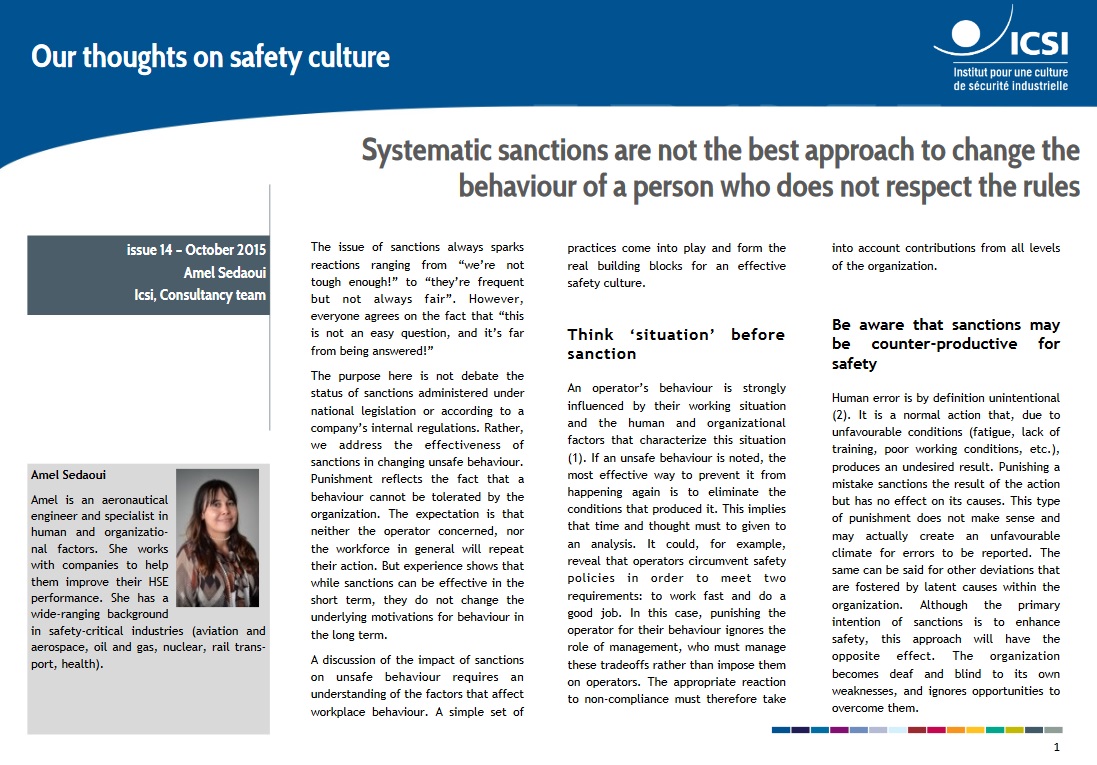
Systematic sanctions are not the best approach to change the behavior of a person who does not respect the rules
Systematic punishment is, therefore, counterproductive. It makes it impossible to look again at the workplace conditions that led to the dangerous behavior, and prevent anyone asking questions about whether there were contradictory requirements – or even the role of the organization as a whole. Furthermore, it removes the right to make a mistake as, by definition, a mistake is unintentional.
In her Thoughts on Safety Culture, Amel Sedaoui invites us to think about workplace conditions before meting out a punishment. She addresses punishment from the overall perspective of a just culture policy, and advocates value-driven management, rather than ruling by fear.
 Systematic sanctions are not the best approach to change the behavior of a person who does not respect the rules
Systematic sanctions are not the best approach to change the behavior of a person who does not respect the rules
